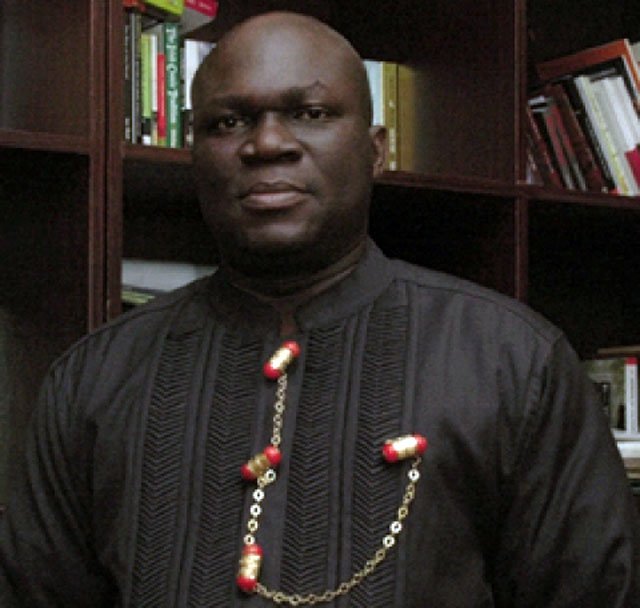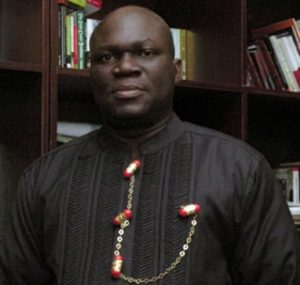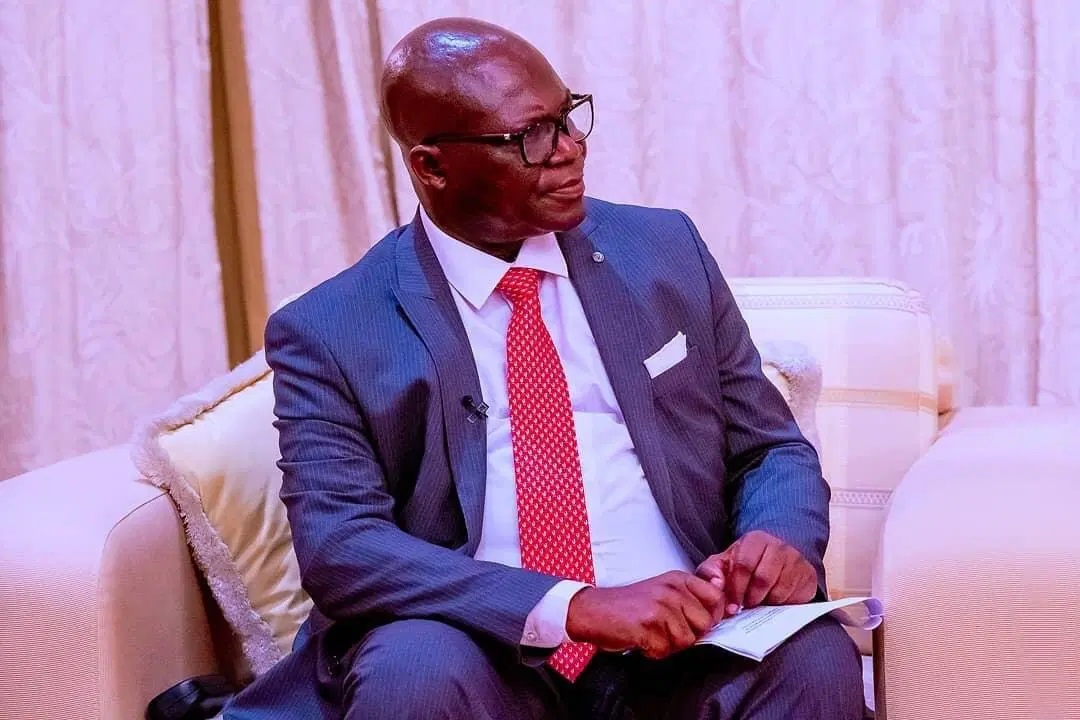Feature/OPED
#BBNaija: Television as Madness


By Reuben Abati
What a relief! So, the Big Brother Naija reality television programme is finally over. It ended Sunday evening with 23-year old Efe Michael Ejemba, University of Jos graduate of Economics and singer winning the N25 million + SUV at stake, with 57.6 percent of the votes from over 24 million voters across Africa.
Warri, where Efe’s family lives, erupted in excitement. At the Multichoice viewing centre in Ikeja, Lagos, where Katung Aduwak took charge so brilliantly, there was a similar eruption of incandescent joy.
I was relieved because for about 70 days, the Big Brother Naija show was a big distraction, crass capitalism at its most cynical edge, a source of unmanageable madness in homes and on the streets. Now that it is over, it is time for some honest frank talk for the attention of all stakeholders involved.
Let me start with the lessons, on a positive note, before delivering the blows.
Lesson one: In a very instructive manner, the Big Brother Naija reality television show promoted the ideas of choice and people power at the heart of democracy.
Televised across Africa, the viewers had the final say in determining who stayed in the house or left during eviction moments on Sundays.
The votes were collated, audited and confirmed by Deloitte, a firm of auditors and thus, the viewer as the voter determined the outcomes.
In that regard, a reality show of that sort promoted a consciousness of democracy, choice and influence and it further explained why the people from Nigeria to Cape Agulhas all the way up to the Mediterranean Sea took fierce ownership of the programme.
In a continent where power is the ultimate aphrodisiac and every access to power, fame and influence is seen as an opportunity to oppress and demean, whatever is done to promote a consciousness of choice and the civil society is laudable. Multichoice, thanks.
Lesson Two: In every business concept, perseverance pays. Multichoice has been running its Big Brother Naija and Big Brother Africa concepts for a number of years. Apparently, this year’s Big Brother Naija has been the most impactful, the most profitable and probably also, the most exciting.
In one week, over 11 million persons voted to determine the eviction. In the final week of the programme, over 24 million persons voted – that is more than the total number of persons who voted in the Nigerian Presidential election in 2015.
This year, Multichoice has made more money from the Big Brother franchise than it has ever done. The programme was sponsored by PayPorte, and with all the voting, and the money spent on recharge cards, Big Brother and Multichoice are the biggest winners.
In the end, it is all about business and profit. Everybody has been used. In business, once you have a good, attractive product and you can capture the market, you can fool everybody and make profit. Multichoice, weh done – in Falz, the bad guy’s voice.
Lesson three: Humility pays. At the end of the day, in the last week of the programme, the decision by the viewing public was a moral, sentimental one. The biggest star of the programme was, I don’t know what you think, TBOSS (real name: Tokunbo Idowu), half Nigerian, half-Romanian. She dominated the space with her Jezebelic antics, even got some of the male participants ousted by entrapping and outsmarting them with her sèxual wiles.
She projected herself as a sèx object, the ultimate manipulator, the champion Delilah of the Big Brother Africa series.
She even made a joke of the entire Big Brother concept by saying she didn’t need the money and if she won, she would spend it in two weeks to pay off debts, and in any case, she had men hitting on her, offering to take her on a ride in their private jets. She played the role of a female barracuda.
Given her looks and talents, she would have been a perfect winner. She would have looked good on the billboards. But she lost because of her arrogance. Attitude is everything: this is the lesson of TBOSS’s disgrace and humiliation. When she was sent out of the House as the second runner up, the viewing centre in Ikeja, Lagos, including Kemen whose nemesis she was, danced in joy.
“They are taunting me?” she asked Ebuka, the anchor. No, sweetheart, they were making a far more serious statement about you. The melodramatic ending of Big Brother Naija 2017 is its only redeeming outcome.
Bisola, the first runner up does not even have a degree but she showed talent and resolve, even if her whorish flirtation with Thin Tall Tony is so cheap and self-denigrating. Her One-Nigeria consolation prize is something big she should take seriously.
Efe won because of his humility. He is considered the poorest and the neediest of the contestants.
Patrons of the programme chose to vote for the contestant who looked and sounded like he would need the money and the opportunity. They gave him a chance in life, although the organizers must ensure that going forward, the show does not become a poverty alleviation scheme.
Bisola came second because she too looked like she needed help. Debbie Rise and Marvis also made the finals, but that was meant to be a great compliment to their good conduct, but they didn’t have enough support to make it to the top.
TBOSS is the main star who lost. I hope she was taken out of South Africa with a private jet or maybe a submarine! Beauty is not everything, baby.
Lesson four: Marketing helps. Branding is everything. Propaganda is profitable. Packaging is nice. Big Brother Naija is nothing but marketing, branding, propaganda, and packaging.
A reality show is supposed to be nothing but reality, virtual reality as it happens, but let no one deceive you, everything that happened in the 70 days of BBNaija was packaged, marketed, carefully branded and manipulated.
Ebuka, the Big Brother, thumbs up, the scenic designers, kudos, the content developers, three hearty cheers, Multichoice, you guys are the smartest capitalists around, well done!
The finale was a bit overdone though, dragged out, over-delayed. Tiwa Savage (hey baby, watch that growing fat around your waist and thigh), Tuface (thanks TuBaba but next time tell Annie to twerk for us- what was that!). In all, the power of television was well advertised.
Now the hard knocks: I rate the theatre high but I consider the whole show a sham, a 419 manipulative effort by a corporate agency, long overdue for an ethical review and scrutiny, a bad influence on corporate ethics.
The owners of the programme are just a bunch of insultive, manipulative and exploitative capitalists, feeding on public need for distraction and the negligence of the authorities.
Big Brother Naija 2017 is something that should never happen again in the shape we have seen. If Multichoice as a corporate investor wants to make a contribution to Nigeria, it must find ways of doing so in more meaningful forms.
Reality shows have become an established form on television, but whereas there are reality shows that promote talent, music, human capability and genius, enhanced relationships, and intellect, Multichoice, through its Big Brother Naija and Big Brother Africa franchises seems committed to the promotion of base values, chiefly adultery, prōstitution, love of money, nῡdity and sèx.
What just ended as Big Brother Naija 2017 was nothing other than the corralling of some human beings into a zoo, pressured to behave like nothing but animals. The organizers made money devaluing other human beings. Multichoice and Payporte, the sponsors, turned alcohol and pōrnography into legitimate sport.
TBOSS and the other girls kissed and got groped by the boys on live television putting their upbringing to shame.
TBOSS, who claimed she didn’t need the money even exposed her brèasts on live television more than once. I have seen better brèasts TBOSS. I am not too sure those private jet owners will be excited by your fluffy, South-looking, slightly bigger than mangoes brèasts.
If the same men see bigger assets, I mean, those interesting Ojiakor-like ones that look like papayas, pineapples and watermelons, they will not send private jets, they will deploy submarines and fighter jets!
And that’s why you got N500k in the end, way back behind Bisola with her hard facial features, and Efe whose victory is based on poverty logistics and appeal.
But I have no doubt that TBOSS will end up doing better in the larger, outside market than the other finalists, because even those who did not vote for her, know in their hearts that she represents the message of the programme.
It is a wrong message and that is why Big Brother Naija drew more audience in Southern Nigeria than in the North.
In the last week of the programme,, every town in Southern Nigeria was seized by the #BBNaija fever. Prayers were offered in churches for Efe. One lady threatened to commit suicide if Efe did not win. Another one said she would not stop crying until Efe won. Nollywood stars declared support for housemates. There was Team Bisola, Team Efe, EfeNation, TBOSSNation, TeamDebbieRise (small), TeamMarvis (even smaller). There were public processions even in universities. We were told how to vote. Twitter was on fire. What I saw was nothing but sheer madness. T-shirts were printed. One musician turned his personal car into a billboard. Nigeria became a mad house because of one reality television show. It looked like mass hypnotism at work.
But it should not be allowed to happen again. BBNaija should not be hosted and staged in South Africa as has been the case.
Multichoice, Payporte and their partners made crazy money and got brand promotion off the back and sweat of Nigerians.
Do the maths; we got peanuts in return. We were told BBNaija could not be staged in Nigeria due to electricity problems so the studio had to be in South Africa. And the Nigerian government looked the other way. Wawu! All the billions that the South Africans are running away with, after giving our boy a Kia SUV and some N25m, who is going to collect the Value Added Tax on that? Nigeria or South Africa? See the real Gobbe! All the staff who worked on the programme with extremely marginal exception were South Africans. Where were the Nigerians? Abi, Lobatan oh.
The Nigerian government must assert itself. Nobody henceforth must brand anything involving primary production, Nigerian off Nigerian soil. We can’t get far by wearing made-in-Nigerian clothes on Mondays and Wednesdays, turning the country into an extension of Nollywood, but we can gain a lot by insisting that economic production and profit based on Nigerian talent and resource must have significant Nigerian content.
Congratulations Efe; the grace of God is forever sufficient, but sorry Nigeria.
Feature/OPED
How Christians Can Stay Connected to Their Faith During This Lenten Period

It’s that time of year again, when Christians come together in fasting and prayer. Whether observing the traditional Lent or entering a focused period of reflection, it’s a chance to connect more deeply with God, and for many, this season even sets the tone for the year ahead.
Of course, staying focused isn’t always easy. Life has a way of throwing distractions your way, a nosy neighbour, a bus driver who refuses to give you your change, or that colleague testing your patience. Keeping your peace takes intention, and turning off the noise and staying on course requires an act of devotion.
Fasting is meant to create a quiet space in your life, but if that space isn’t filled with something meaningful, old habits can creep back in. Sustaining that focus requires reinforcement beyond physical gatherings, and one way to do so is to tune in to faith-based programming to remain spiritually aligned throughout the period and beyond.
On GOtv, Christian channels such as Dove TV channel 113, Faith TV and Trace Gospel provide sermons, worship experiences and teachings that echo what is being practised in churches across the country.
From intentional conversations on Faith TV on GOtv channel 110 to true worship on Trace Gospel on channel 47, these channels provide nurturing content rooted in biblical teaching, worship, and life application. Viewers are met with inspiring sermons, reflections on scripture, and worship sessions that help form a rhythm of devotion. During fasting periods, this kind of consistent spiritual input becomes a source of encouragement, helping believers stay anchored in prayer and mindful of God’s presence throughout their daily routines.
To catch all these channels and more, simply subscribe, upgrade, or reconnect by downloading the MyGOtv App or dialling *288#. You can also stream anytime with the GOtv Stream App.
Plus, with the We Got You offer, available until 28th February 2026, subscribers automatically upgrade to the next package at no extra cost, giving you access to more channels this season.
Feature/OPED
Turning Stolen Hardware into a Data Dead-End

By Apu Pavithran
In Johannesburg, the “city of gold,” the most valuable resource being mined isn’t underground; it’s in the pockets of your employees.
With an average of 189 cellphones reported stolen daily in South Africa, Gauteng province has become the hub of a growing enterprise risk landscape.
For IT leaders across the continent, a “lost phone” is rarely a matter of a misplaced device. It is frequently the result of a coordinated “snatch and grab,” where the hardware is incidental, and corporate data is the true objective.
Industry reports show that 68% of company-owned device breaches stem from lost or stolen hardware. In this context, treating mobile security as a “nice-to-have” insurance policy is no longer an option. It must function as an operational control designed for inevitability.
In the City of Gold, Data Is the Real Prize
When a fintech agent’s device vanishes, the $300 handset cost is a rounding error. The real exposure lies in what that device represents: authorised access to enterprise systems, financial tools, customer data, and internal networks.
Attackers typically pursue one of two outcomes: a quick wipe for resale on the secondary market or, far more dangerously, a deep dive into corporate apps to extract liquid assets or sellable data.
Clearly, many organisations operate under the dangerous assumption that default manufacturer security is sufficient. In reality, a PIN or fingerprint is a flimsy barrier if a device is misconfigured or snatched while unlocked. Once an attacker gets in, they aren’t just holding a phone; they are holding the keys to copy data, reset passwords, or even access admin tools.
The risk intensifies when identity-verification systems are tied directly to the compromised device. Multi-Factor Authentication (MFA), widely regarded as a gold standard, can become a vulnerability if the authentication factor and the primary access point reside on the same compromised device. In such cases, the attacker may not just have a phone; they now have a valid digital identity.
The exposure does not end at authentication. It expands with the structure of the modern workforce.
65% of African SMEs and startups now operate distributed teams. The Bring Your Own Device (BYOD) culture has left many IT departments blind to the health of their fleet, as personal devices may be outdated or jailbroken without any easy way to know.
Device theft is not new in Africa. High-profile incidents, including stolen government hardware, reinforce a simple truth: physical loss is inevitable. The real measure of resilience is whether that loss has any residual value. You may not stop the theft. But you can eliminate the reward.
Theft Is Inevitable, Exposure is Not
If theft cannot always be prevented, systems must be designed so that stolen devices yield nothing of consequence. This shift requires structured, automated controls designed to contain risk the moment loss occurs.
Develop an Incident Response Plan (IRP)
The moment a device is reported missing, predefined actions should trigger automatically: access revocation, session termination, credential reset and remote lock or wipe.
However, such technical playbooks are only as fast as the people who trigger them. Employees must be trained as the first line of defence —not just in the use of strong PINs and biometrics, but in the critical culture of immediate reporting. In high-risk environments, containment windows are measured in minutes, not hours.
Audit and Monitor the Fleet Regularly
Control begins with visibility. Without a continuous, comprehensive audit, IT teams are left responding to incidents after damage has occurred.
Opting for tools like Endpoint Detection and Response (EDR) allows IT teams to spot subtle, suspicious activities or unusual access attempts that signal a compromised device.
Review Device Security Policies
Security controls must be enforced at the management layer, not left to user discretion. Encryption, patch updates and screen-lock policies should be mandatory across corporate devices.
In BYOD environments, ownership-aware policies are essential. Corporate data must remain governed by enterprise controls regardless of device ownership.
Decouple Identity from the Device
Legacy SMS-based authentication models introduce avoidable risk when the authentication channel resides on the compromised handset. Stronger identity models, including hardware tokens, reduce this dependency.
At the same time, native anti-theft features introduced by Apple and Google, such as behavioural theft detection and enforced security delays, add valuable defensive layers. These controls should be embedded into enterprise baselines rather than treated as optional enhancements.
When Stolen Hardware Becomes Worthless
With POPIA penalties now reaching up to R10 million or a decade of imprisonment for serious data loss offences, the Information Regulator has made one thing clear: liability is strict, and the financial fallout is absolute. Yet, a PwC survey reveals a staggering gap: only 28% of South African organisations are prioritising proactive security over reactive firefighting.
At the same time, the continent is battling a massive cybersecurity skills shortage. Enterprises simply do not have the boots on the ground to manually patch every vulnerability or chase every “lost” terminal. In this climate, the only viable path is to automate the defence of your data.
Modern mobile device management (MDM) platforms provide this automation layer.
In field operations, “where” is the first indicator of “what.” If a tablet assigned to a Cape Town district suddenly pings on a highway heading out of the city, you don’t need a notification an hour later—you need an immediate response. An effective MDM system offers geofencing capabilities, automatically triggering a remote lock when devices breach predefined zones.
On Supervised iOS and Android Enterprise devices, enforced Factory Reset Protection (FRP) ensures that even after a forced wipe, the device cannot be reactivated without organisational credentials, eliminating resale value.
For BYOD environments, we cannot ignore the fear that corporate oversight equates to a digital invasion of personal lives. However, containerization through managed Work Profiles creates a secure boundary between corporate and personal data. This enables selective wipe capabilities, removing enterprise assets without intruding on personal privacy.
When integrated with identity providers, device posture and user identity can be evaluated together through multi-condition compliance rules. Access can then be granted, restricted, or revoked based on real-time risk signals.
Platforms built around unified endpoint management and identity integration enable this model of control. At Hexnode, this convergence of device governance and identity enforcement forms the foundation of a proactive security mandate. It transforms mobile fleets from distributed risk points into centrally controlled assets.
In high-risk environments, security cannot be passive. The goal is not recovery. It is irrelevant, ensuring that once a device leaves authorised hands, it holds no data, no identity leverage, and no operational value.
Apu Pavithran is the CEO and founder of Hexnode
Feature/OPED
Daniel Koussou Highlights Self-Awareness as Key to Business Success

By Adedapo Adesanya
At a time when young entrepreneurs are reshaping global industries—including the traditionally capital-intensive oil and gas sector—Ambassador Daniel Koussou has emerged as a compelling example of how resilience, strategic foresight, and disciplined execution can transform modest beginnings into a thriving business conglomerate.
Koussou, who is the chairman of the Nigeria Chapter of the International Human Rights Observatory-Africa (IHRO-Africa), currently heads the Committee on Economic Diplomacy, Trade and Investment for the forum’s Nigeria chapter. He is one of the young entrepreneurs instilling a culture of nation-building and leadership dynamics that are key to the nation’s transformation in the new millennium.
The entrepreneurial landscape in Nigeria is rapidly evolving, with leaders like Koussou paving the way for innovation and growth, and changing the face of the global business climate. Being enthusiastic about entrepreneurship, Koussou notes that “the best thing that can happen to any entrepreneur is to start chasing their dreams as early as possible. One of the first things I realised in life is self-awareness. If you want to connect the dots, you must start early and know your purpose.”
Successful business people are passionate about their business and stubbornly driven to succeed. Koussou stresses the importance of persistence and resilience. He says he realised early that he had a ‘calling’ and pursued it with all his strength, “working long weekends and into the night, giving up all but necessary expenditures, and pressing on through severe setbacks.”
However, he clarifies that what accounted for an early success is not just tenacity but also the ability to adapt, to recognise and respond to rapidly changing markets and unexpected events.
Ambassador Koussou is the CEO of Dau-O GIK Oil and Gas Limited, an indigenous oil and natural gas company with a global outlook, delivering solutions that power industries, strengthen communities, and fuel progress. The firm’s operations span exploration, production, refining, and distribution.
Recognising the value of strategic alliances, Koussou partners with business like-minds, a move that significantly bolsters Dau-O GIK’s credibility and capacity in the oil industry. This partnership exemplifies the importance of building strong networks and collaborations.
The astute businessman, who was recently nominated by the African Union’s Agenda 2063 as AU Special Envoy on Oil and Gas (Continental), admonishes young entrepreneurs to be disciplined and firm in their decision-making, a quality he attributed to his success as a player in the oil and gas sector. By embracing opportunities, building strong partnerships, and maintaining a commitment to excellence, Koussou has not only achieved personal success but has also set a benchmark for future generations of African entrepreneurs.
His journey serves as a powerful reminder that with determination and vision, success is within reach.
-

 Feature/OPED6 years ago
Feature/OPED6 years agoDavos was Different this year
-
Travel/Tourism10 years ago
Lagos Seals Western Lodge Hotel In Ikorodu
-

 Showbiz3 years ago
Showbiz3 years agoEstranged Lover Releases Videos of Empress Njamah Bathing
-

 Banking8 years ago
Banking8 years agoSort Codes of GTBank Branches in Nigeria
-

 Economy3 years ago
Economy3 years agoSubsidy Removal: CNG at N130 Per Litre Cheaper Than Petrol—IPMAN
-

 Banking3 years ago
Banking3 years agoSort Codes of UBA Branches in Nigeria
-

 Banking3 years ago
Banking3 years agoFirst Bank Announces Planned Downtime
-

 Sports3 years ago
Sports3 years agoHighest Paid Nigerian Footballer – How Much Do Nigerian Footballers Earn

















